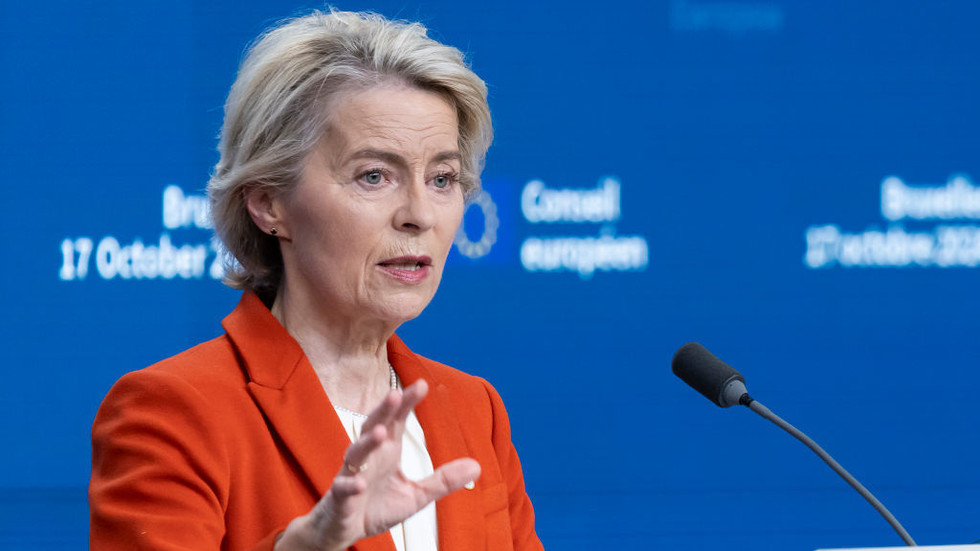The outcome of the US presidential election will not only set the course for the country's future. It will also have an existential impact on Ukraine.
America has been the biggest supporter of Ukraine in its attempt to defend itself against Russia's invasion in 2022. Under President Joe Biden, the US has so far supplied military intelligence, cash and advanced weapons worth nearly $175 billion (€161 billion) to help Ukraine.
Whoever is elected president on November 5 could hold Ukraine's destiny in his or her hands. When that candidate is inaugurated on January 20, 2025, the war in Ukraine will have been going on for nearly three years.
The US has three options: cutting aid to Ukraine, keeping the status quo or reaching for a more assertive approach, says Michaela Mattes, a professor of political science at the University of California, Berkeley, specializing in international conflict and cooperation.
Kamala Harris, Russia and the war in Ukraine
Democratic presidential candidate and current Vice President Kamala Harris has been clear about her support for Ukraine.
"Harris has pledged to stay with Ukraine as long as it takes," Shawn Donahue, a clinical assistant professor of political science at the University at Buffalo in New York, tells DW. He says Harris would also be "more likely to allow US long-range weapons to be used against targets inside Russia."
 Harris wants to be a reliable partner for Europe, 'but expects Europeans to strengthen their own commitments to Ukraine and NATO,' says Dominik TolksdorfImage: Jacquelyn Martin/AP/picture alliance
Harris wants to be a reliable partner for Europe, 'but expects Europeans to strengthen their own commitments to Ukraine and NATO,' says Dominik TolksdorfImage: Jacquelyn Martin/AP/picture allianceMattes agrees that, at the very least, Harris will continue with the status quo and support Ukraine and keep Russian sanctions in place. She could even become more assertive and take a stronger stance to establish a reputation as a strong leader.
For the Vice President, European security and global stability are on the line. "Harris sees Russia as a dangerous country that has violated international law and also done something immoral in a way that Russia cannot be trusted," Mattes said.
Donald Trump, Russia and the war in Ukraine
Republican presidential candidate Donald Trump has a different approach to Ukraine and has surrounded himself with like-minded advisors.
Trump has a complicated history with Ukraine, which includes his attempt to pressure President Volodymyr Zelenskyy to open an investigation against Biden that led to his first impeachment.
Pointing to his relationship with Russian President Vladimir Putin, Trump claims the war would not have happened if he were president.
Now, the former president pledges to end the war "within 24 hours" if he wins reelection. With no details about how this would happen, many assume any peace deal would favor Russia.
Trump could force Ukraine to accept some type of frozen conflict at roughly the current battlefield lines, which would be at the expense of Ukrainian territory, says Donahue. It is unclear if Putin would accept such conditions long-term, but they would give his military time to rearm.
 US lawmakers could constrain Trump by passing more aid packages and keeping sanctions in place that he cannot touchImage: Julia Demaree Nikhinson/AP Photo/picture alliance
US lawmakers could constrain Trump by passing more aid packages and keeping sanctions in place that he cannot touchImage: Julia Demaree Nikhinson/AP Photo/picture allianceThe Republican candidate has also made it clear Europe has to provide a larger share of support for Ukraine, says Dominik Tolksdorf, an associate fellow at the German Council on Foreign Relations and non-resident senior fellow at the Global Governance Institute.
Reducing vital aid to Ukraine could force the issue. If American support ended completely, European governments would struggle to support Ukraine on their own. That would give the Kremlin more leeway to impose its will on Ukraine, says Tolksdorf, who specializes in US politics and trans-Atlantic relations.
Ukraine and NATO membership
Another thorny issue is Ukraine's desire to join NATO.
At some point, Harris is likely to support NATO membership for Ukraine, says Donahue, who has spent time in Ukraine twice since the start of the war.
One suggestion being discussed is a membership model that assumes the country does not regain its 1991 borders. In this case, NATO would only be obligated to defend territory currently Ukraine controlled. It would be similar to the situation with West Germany before German reunification.
Trump, on the other hand, has been a vocal critic of NATO, even suggesting it not defend some under-spending members.
Despite such animosity toward the organization, Trump could bring Ukraine closer to NATO as part of a settlement ending the war, says Kurt Volker, special envoy to Ukraine from 2017 to 2019. Having Ukraine in NATO would be part of "a permanent peace and permanent deterrence," he told DW at the beginning of October.
The next Congress will have a big say
Changes in the majorities in Congress will have just as big an impact as a new American president because they approve spending bills.
Of the 100 Senate seats, 34 are up for election, as are all 435 seats in the House of Representatives. Democratic control of the House will be crucial for Harris to keep weapons and aid flowing to Ukraine.
At the same time, many Republicans believe that China, Iran and North Korea are indirectly involved in the war against Ukraine, says Dominik Tolksdorf.
For these lawmakers, a Ukrainian defeat would be a strategic success for their enemies and "would weaken the US position in the world," he says.
Americans skeptical of Russia
Another fear is that the American public will tire of war.
The percentage of Americans who say Russia's invasion of Ukraine is a threat to US interests has declined significantly since 2022, according to a survey carried out at the start of July by the Pew Research Center.
The study found that 69% of Americans approve of economic sanctions on Russia, while 54% want to keep sending military equipment to Ukraine. Overall, Americans are evenly divided on whether the country has a responsibility to help Ukraine at all.
Russia is undoubtedly hoping for a Trump victory, not just because he may help Putin gain ground in Ukraine but because, as president, he could further divide the US and destabilize American democracy, says Tolksdorf.
"The hope in the Kremlin is that the US under Trump would be primarily concerned with itself and unable to be an active player in international politics," he concluded.
Edited by: Davis VanOpdorp

 By Deutsche Welle (World News) | Created at 2024-10-30 15:26:12 | Updated at 2024-10-31 15:28:21
1 day ago
By Deutsche Welle (World News) | Created at 2024-10-30 15:26:12 | Updated at 2024-10-31 15:28:21
1 day ago



